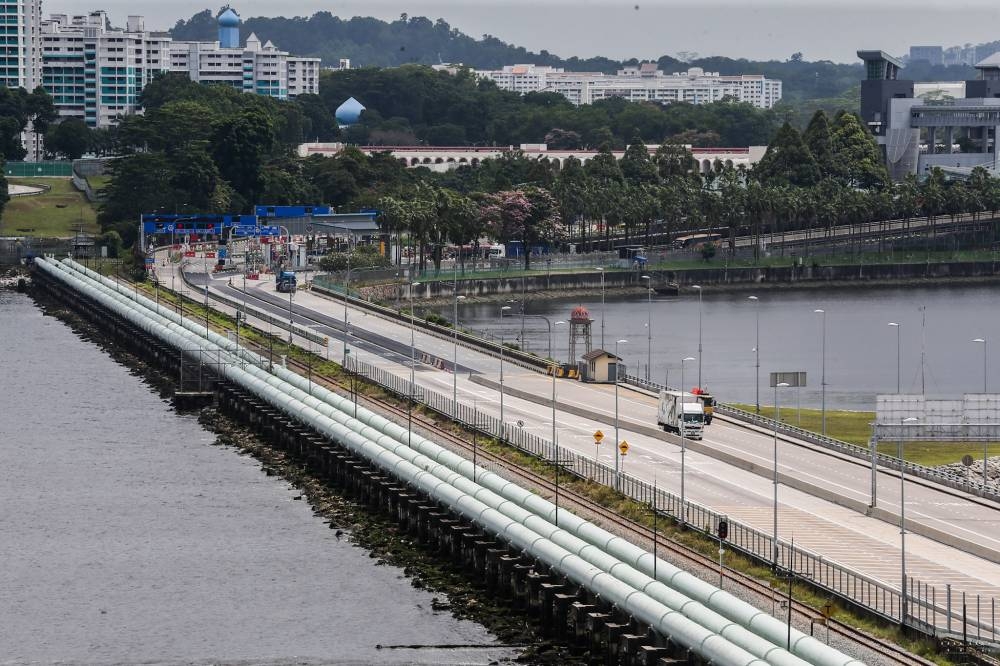Report: More Singaporeans migrating to JB to WFH

KUALA LUMPUR — A growing number of Singaporeans are crossing the Causeway to live in southern peninsular Malaysia where they can work from home (WFH) to save on their living costs due to the higher value of the Singapore dollar compared to the ringgit.
One such person who made the move after the two countries’ borders reopened this year is Jasmine Loh who works as a consultant project manager for a Singaporean firm.
She told news outlet Channel News Asia that she was able to do it as she is allowed to wfh, which is now an apartment in the city centre of Johor Baru.
“My company doesn’t have an office so it makes sense that I can operate in Johor Baru even though I work for a Singapore company,” Loh told the Singapore-based news agency.
“My employer does not mind that I am based overseas because some of my fellow colleagues are based in other parts of the world. We have online meetings every day to check in and share project updates. Being based across the Causeway has not been an issue.”
Channel News Asia cited a recent study from recruitment agency Randstad, which found two out of five Singaporean workers interviewed from a pool of 1,000 saying they would not accept a job if they were unable to WFH or any time they wanted.
Some 77 per cent of the Singaporeans polled said that they valued the importance of remote work.
Randstad managing director Jaya Dass told Channel News Asia that there was an increase in preference for remote work because WFH gives people the flexibility to have greater control of their time, allowing them to do things like meet up with friends over a meal, work on hobbies or new skills and travel.
“The findings in our research suggested that Singaporeans want the option to work flexibly because it allows them to personalise their schedule. When employees WFH, not only will there be less distractions to meet deadlines at work, they will also get to spend more time with their family members and do some household work,” she was quoted as saying.
Other Singaporean nationals who have been lured to Johor so they could work from home explained that a combination of various factors enabled their move.
IT engineer Azhar Yusof who moved to Nusajaya earlier this year listed an accommodating boss and the favourable exchange rate with the ringgit now at an all-time low, thus allowing him to buy groceries and pay other bills in the cheaper ringgit while earning Singapore dollars.
The 58-year-old told the Singapore news agency that groceries in Malaysia are typically 50 per cent cheaper compared to Singapore, and local shops had fresh and cheap goods.
“I earn in Singapore dollars and I’m spending mostly in ringgit. This is a good thing.”
Business owner Chen Chun-You, who founded Singaporean e-payment service Sapphiro, pays some S$350 (about RM1,130)in rent a month, to live in a 4- to 5-star standard condominium in Tanjung Puteri, within 5km of the causeway.
Enjoying this article?
Subscribe to get more stories like this delivered to your inbox.
He said his living arrangement does not affect his capacity to manage his business but allows him to save on expenses while upgrading his lifestyle to private housing.
The Singaporeans interviewed also said that Malaysia’s internet connectivity is among the incentives for their move to WFH here as their work is not prone to disruption.
Chen is planning to expand his company in Malaysia after moving here, saying that if Singaporean entrepreneurs could overcome their concerns on crime and safety, they might then see the potential benefits of expanding across the Causeway.
“Johor Baru has untapped potential, the market is huge and it’s growing.
“The city ticks many boxes and has good potential for growth. It is worth trying out for themselves and see if it works,” he told Channel News Asia.
For any query with respect to this article or any other content requirement, please contact Editor at [email protected] 2017 Malay Mail Online
Contributing writer at The Independent News
